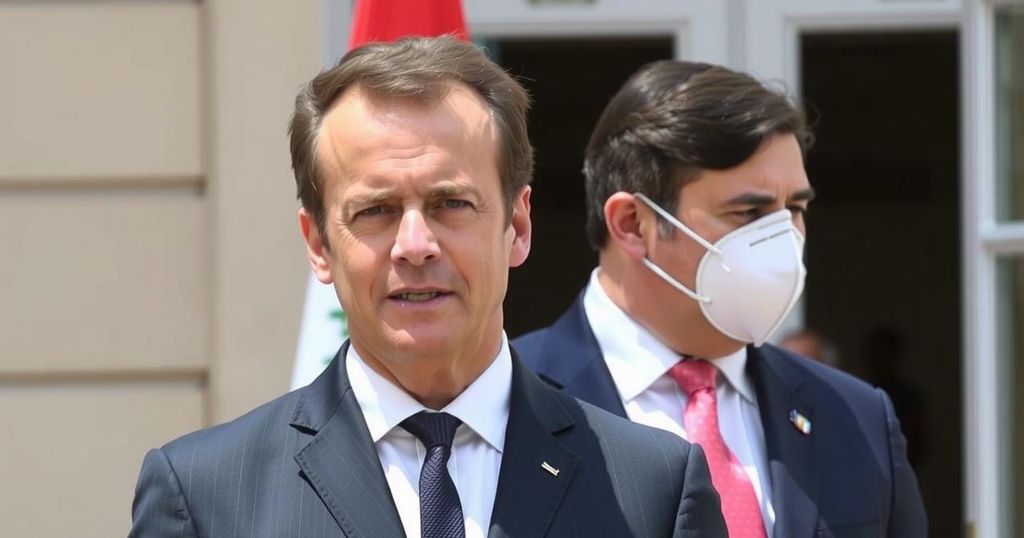French President Emmanuel Macron is set to visit Lebanon on Friday, following the election of Joseph Aoun as president. His visit aims to express France’s commitment to Lebanon’s sovereignty and support the new prime minister, Nawaf Salam. This context follows a ceasefire agreement with Israel and a dire economic situation in Lebanon.
French President Emmanuel Macron is scheduled to visit Lebanon this Friday, marking the second visit of a head of state since Lebanon’s recent presidential election. The office of newly elected President Joseph Aoun announced that he met with the French ambassador in Beirut to prepare for Macron’s arrival. This visit follows the election of Aoun, which occurred under substantial international pressure, particularly from France, after a vacancy lasting over two years.
On Monday, President Aoun appointed judge and diplomat Nawaf Salam as Prime Minister, tasking him with forming a cabinet amid a severe economic crisis that has plagued Lebanon for five years. Macron’s administration emphasized that the purpose of the visit is to reaffirm France’s dedication to support Lebanon’s sovereignty and unity.
Macron’s upcoming trip is particularly significant as it follows a ceasefire agreement brokered by himself and US President Joe Biden, which concluded two months of heightened conflict between Israel and Hezbollah. Under the terms of this agreement, the Lebanese army will be allowed 60 days to deploy alongside UN peacekeepers in southern Lebanon while the Israeli military withdraws. Concurrently, Hezbollah is obligated to relocate its forces from the southern region and dismantle any remaining military infrastructure.
Macron’s office indicated that this visit would also involve discussions regarding the enforcement of the ceasefire and France’s ongoing commitment to the United Nations Interim Force in Lebanon (UNIFIL). Macron expressed hope that Salam’s new government would facilitate significant change within Lebanon and represent the diverse demographics of the country. In October, a conference held in Paris gathered approximately $800 million for humanitarian assistance to Lebanon.
The visit of President Emmanuel Macron to Lebanon is set against a backdrop of political uncertainty and economic distress in the country. Following a prolonged vacancy in the presidential role, Joseph Aoun was elected president, leading to the appointment of a new prime minister amid international backing. This context highlights the ongoing influence of former colonial power France in Lebanese politics, as well as the broader regional implications following recent conflicts involving Israel and Hezbollah. Macron’s commitment to Lebanese sovereignty and support for the country’s governance showcases France’s sustained involvement in the region, particularly in light of severe humanitarian challenges.
In conclusion, President Macron’s visit to Lebanon embodies France’s reaffirmed commitment to supporting the newly elected government and addressing the ongoing humanitarian crises. The recent political developments, including the election of President Aoun and the appointment of Prime Minister Salam, represent a critical junction for Lebanon. Macron’s presence underscores international support, particularly in implementing the ceasefire with Hezbollah and enhancing Lebanon’s governance amidst significant economic challenges.
Original Source: www.arabnews.com






